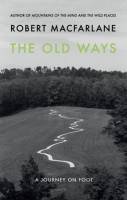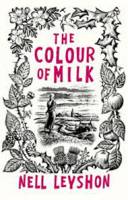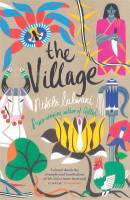Greg Baxter, The Apartment (2012)
 The narrator of Greg Baxter’s first novel is an unidentified American living in the capital of an unidentified European country, on his way to view an apartment, accompanied by Saskia, a young woman he has befriended whilst in the city. There’s also a sense in which he’s trying to leave the past behind, and searching for something deeper than a place to live – stability, perhaps; or the chance to control his own world, even if that amounts to little more than being able to fade into the background.
The narrator of Greg Baxter’s first novel is an unidentified American living in the capital of an unidentified European country, on his way to view an apartment, accompanied by Saskia, a young woman he has befriended whilst in the city. There’s also a sense in which he’s trying to leave the past behind, and searching for something deeper than a place to live – stability, perhaps; or the chance to control his own world, even if that amounts to little more than being able to fade into the background.
The Apartment is told as one continuous utterance – no chapters, no scene breaks; this has the effect of melding past and present, the most mundane details of life and the most exceptional experiences. Everything becomes an aspect of the whole, whether it’s a memory of life in the US, a digression on billiards or architecture, or an encounter with an inhabitant of the city. Nevertheless, there are strongly contrasting textures in the novel: The protagonist was in Iraq (firstly in the Navy, then privately); the passages depicting what happened to him there have a certain mistiness about them that plays against the precise detail of the present-day sequences – though that precision is itself undercut to an extent by the lack of geographical specifics.
Baxter’s novel is also peppered with striking observations of human behaviour (for example: ‘people here are always reassuring each other that they exist and life exists and the city itself exists by refusing to communicate’). The Apartment is one of those books which finds something remarkable in the fabric of the ordinary.
Mustafa Alrawi, Creating Rachel (2012)
 Mustafa Alrawi’s short novel – again, a debut – is narrated by Mohammed, a young man who’s mostly been drifting through life, buoyed up by his privileged background. But, just over a year ago, he met and fell in love with a girl named Rachel – though he still doesn’t seem certain whether his love was ever reciprocated; now, Mohammed looks back over that time, and how knowing Rachel has shaped the person he is now.
Mustafa Alrawi’s short novel – again, a debut – is narrated by Mohammed, a young man who’s mostly been drifting through life, buoyed up by his privileged background. But, just over a year ago, he met and fell in love with a girl named Rachel – though he still doesn’t seem certain whether his love was ever reciprocated; now, Mohammed looks back over that time, and how knowing Rachel has shaped the person he is now.
Creating Rachel is firmly embedded in Mohammed’s subjectivity – almost too much so, as the reader’s sense of how the protagonist’s actions and attitudes may appear from the outside can be diluted. But an effective uncertainty also comes off the page – uncertainty over how much happened in reality, and how Mohammed really feels about Rachel. He builds an idea (or several) of her in his mind, and we see how doing that changes him; as much as Mohammed might be said to be ‘creating Rachel’, he’s also creating himself.










Recent Comments